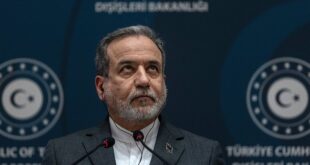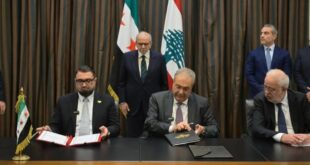Debate in Pristina hears calls for rediscovery of trust and a degree of compromise between the two estranged neighbours.The normalization of relations between Kosovo and Serbia is essential for transforming the hostile relations of the last 20 years, a debate organized by the Kosovar Institute for Peace agreed on Tuesday.
Representatives of the Institute said negotiations between both parties should be based on “reciprocity and mutual trust, compliance mechanisms, time limitation, historical compromise and international assurances and monitoring”.
Bajram Kosumi, a former prime minister of Kosovo who chairs the board of the Institute, said reconciliation between Serbs and Albanians, “be it in the context of Kosovo or Southeast Europe will help the process of normalizing relations between Kosovo and Serbia”.
Kosovo declared independence from 2008 in 2008, which Serbia has vowed never to recognise. However, Kosovo and Serbia are engaged in a political dialogue facilitated by the European Union, which started in March 2011.
The process has resulted so far in agreements on freedom of movement, regional representation, mutual recognition of university diplomas and integrated border management, IBM. But not all agreements have been fully implemented.
On October 19, fresh talks, now conducted at a higher level than before, were held in the office of the EU High Representative for Foreign Policy and Security, Catherine Ashton, where Hashim Thaci, Kosovo’s Prime Minister met his Serbian counterpart, Ivica Dacic.
Talks are expected to resume in December, but no agenda is officially set.
Natasa Kandic, director of the Humanitarian Law Centre and one of the founders and leaders of a coalition of NGOs, the Coalition for RECOM, said resolving the issue of missing people from the 1999 conflict is “the start of accepting the past.
“The admission of this by one party and the acceptance of this admission by the other party is a start for another relationship,” Kandic said.
“We haven’t arrived there yet. There are still discussions on missing persons that are not in line with the facts,” she added.
The Humanitarian Law Center believes 13,421 persons died, were killed or went missing during the conflict in Kosovo in 1998-1999.
Most of those still missing are considered to be Albanian, while some 2,000–2,500 were Serbs, Roma, Bosnians and ethnic Albanians who were loyal to Serbia.
Thirteen years after the end of the war in Kosovo uncertainties regarding the victims’ identities remain.
“We all know the figures… but names are important, because in the Balkans there have always been battles about numbers,” Kandic noted.
Issues linked to missing persons have been discussed between governmental commissions of both parties led by the International Red Cross but with no concrete result.
 Eurasia Press & News
Eurasia Press & News


